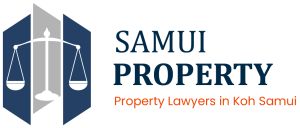Translation and Legalization Services. Thailand, a melting pot of cultures and commerce, necessitates a robust infrastructure for language translation and document legalization. This article delves into the intricacies of these services, providing a comprehensive overview for both residents and visitors.
The Role of Translation in Thailand
Thailand’s tourism industry, coupled with its growing foreign investment, has created a significant demand for language translation services.
The Thai language, though beautiful and complex, presents challenges for those unfamiliar with its nuances. Accurately conveying meaning across languages is paramount in various sectors:
- Business: Contracts, financial reports, marketing materials, and legal documents require precise translation to ensure clarity and avoid misunderstandings.
- Legal: Court documents, affidavits, birth certificates, and marriage certificates often need translation for legal proceedings or immigration purposes.
- Medical: Patient records, medical reports, and drug information must be translated accurately for diagnosis, treatment, and patient safety.
- Education: Academic transcripts, diplomas, and research papers require meticulous translation for students and scholars seeking opportunities abroad.
Understanding Legalization in Thailand
Legalization is a formal process that verifies the authenticity of a document issued in one country for use in another. In Thailand, the Ministry of Foreign Affairs (MFA) is the primary authority responsible for this process. The legalization process typically involves:
- Translation: The document is translated into the target language by a certified translator.
- Authentication: The translated document is authenticated by a relevant government agency, such as the Department of Land Records or the Department of Business Development.
- Consular Legalization: The authenticated document is legalized by the embassy or consulate of the country where the document will be used.
The specific requirements for legalization can vary depending on the document type and the destination country. It’s essential to consult with a qualified translation and legalization service provider to ensure compliance with all necessary procedures.
Challenges in Translation and Legalization
While Thailand has made strides in developing its translation and legalization infrastructure, certain challenges persist:
- Language Complexity: Thai is a tonal language with intricate grammatical structures, making accurate translation demanding.
- Terminology: Specialized terminology in fields like law, medicine, and finance requires expert translators with in-depth knowledge.
- Document Formats: Different countries have varying document formats, which can complicate the legalization process.
- Timeframes: Legalization can be time-consuming, especially for documents requiring multiple levels of authentication.
- Costs: The combined costs of translation and legalization can be substantial, particularly for lengthy or complex documents.
The Importance of Choosing a Reliable Service Provider
Selecting a reputable translation and legalization service provider is crucial to ensure the accuracy, efficiency, and legality of your documents. Key factors to consider when choosing a provider include:
- Expertise: The provider should have a proven track record in handling various document types and language pairs.
- Certifications: Look for translators with relevant certifications and experience.
- Turnaround Time: The provider should be able to meet your deadlines without compromising quality.
- Customer Service: Effective communication and responsiveness are essential for a smooth process.
- Pricing: Compare prices from different providers, but avoid compromising quality for cost.
By understanding the intricacies of translation and legalization in Thailand and partnering with a reliable service provider, individuals and businesses can navigate the process with confidence.

